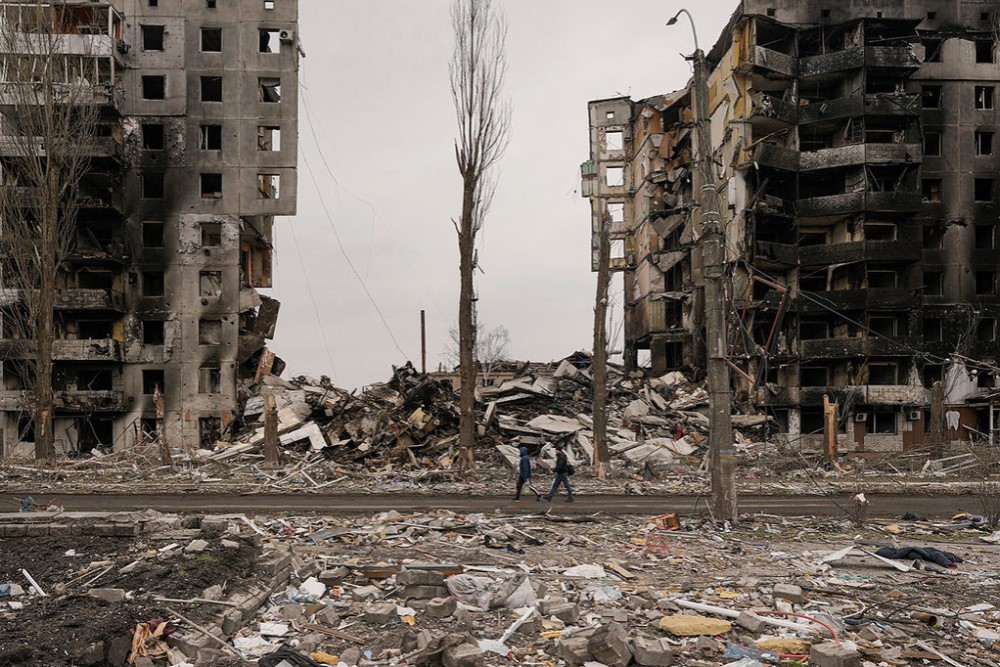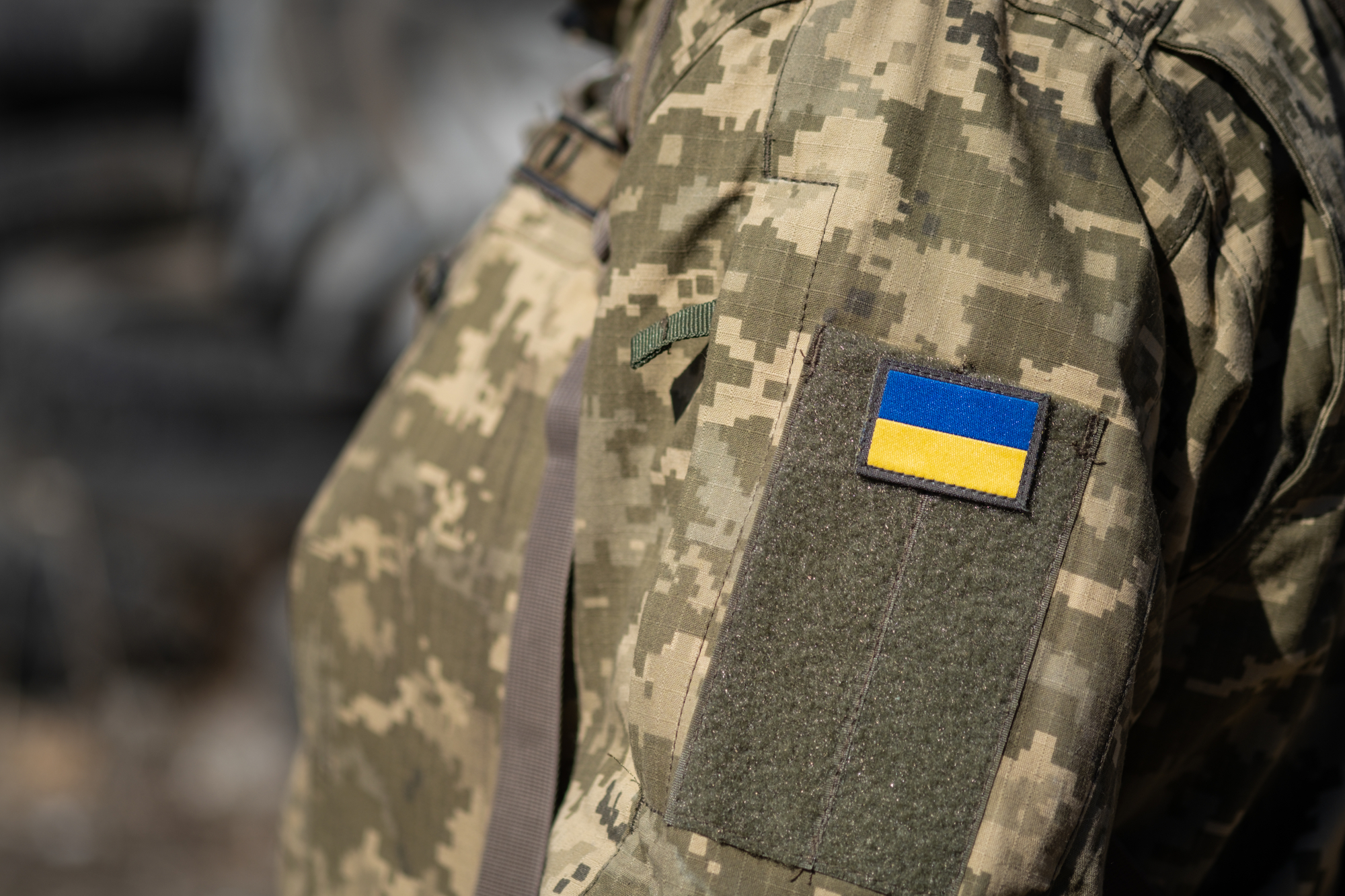The Philosophical Underpinning of “War Crimes” Statutes
Over the past week, Russian forces have withdrawn from the areas surrounding Kyiv and Chernihiv, both located in Northern Ukraine. Belief among Western intelligence agencies is that this has been a repositioning, not a retreat. This withdrawal, however, was accompanied by disturbing reports, to put it mildly. Accusations against Russian soldiers reported by the Human Rights Watch include executions, repeated rape, torture, threats of violence, and destruction of property aimed against civilians in the area. These revelations come after air strikes against targets such as hospitals and theaters housing civilians.
The international outcry has been severe. U.S. President Joe Biden explicitly referred to Putin as a “war criminal” and called for a war crimes trial. Boris Johnson, Prime Minister of the U.K., stated this conduct “fully qualifies as a war crime.” President Volodymyr Zelensky of Ukraine accused Russia of genocide. However, Russian officials have dismissed the outcry, going so far as to claim that the scenes were staged.
These acts seem to violate the Geneva Conventions. Namely, the Fourth Geneva Convention which establishes protections for civilians in war zones. The convention specifically prohibits violence towards civilians, taking them as hostages, treating them in degrading and/or humiliating ways, and extra-judicial punishments like executions. When violations occur, the Convention tasks parties to it with prospecting responsible individuals through their own legal systems or to defer to international courts, like the International Criminal Court, when appropriate.
It is one thing to recognize nations have agreed to these treaties. However, legal agreement is different from morality. So, we should ask: What moral reason is there to avoid these practices?
A simple justification is a consequentialist one. Targeting civilians massively increases the suffering and death that wars inflict. The idea behind war crimes may simply just be to limit the horrific consequences of war by ensuring that the only people targeted by the war are those who are fighting it.
However, consequentialist justifications can always cut the opposite way. One might try to argue that, in the long run, unrestricted warfare could have better consequences than regulated, limited warfare. Much like the possibility of nuclear annihilation has prevented wars between major powers in the later half of the 20th century and onward, perhaps the possibility of any war becoming (even more) horrific would reduce the number of wars overall.
I am very skeptical of this line of reasoning. Nonetheless, there is a possibility, however remote, that it is correct. So, we should look elsewhere to justify war crimes statutes.
Many have thought long and hard about the morality of conduct in war – jus in bello. These “just war” theorists often determine what considerations justify the use of violence at the individual level and “scale up” this explanation to the level of states. What can we learn from these reflections?
First, violence is only justified against a threat. Suppose someone charged at you with harmful intent. However, you could stop the assailant by striking an innocent bystander; if you’re willing to do that to a bystander, then I might be afraid you’ll use any means available against me.
Would stopping me in my tracks justify attacking the innocent bystander? No, this seems false. And this is true even if attacking an innocent produced better consequences overall – the fact that you and your assailant would both be gravely injured does not justify minorly injuring the bystander.
So, most just war theorists propose a prohibition on the direct targeting of non-combatants. Perhaps the deaths of civilians may be justifiable if they are an unintended, regrettable consequence of an act that produces a desirable outcome. But military decision-makers are morally forbidden from directly and intentionally targeting civilians – an idea known as the doctrine of double effect.
Regardless, decision-makers do not have moral license to do anything so long as they don’t directly target civilians. Most just war theorists endorse a second criterion called proportionality. This means the goods gained by an act that unintentionally harms civilians must be proportionate to the harms. Suppose that bombing a mountain pass would slow an advancing army by a day. However, this would also destroy a village, killing at least one thousand civilians. This act does not target civilians, but it still seems wrong; delaying an advance by a day does not seem proportionate to the lives of one thousand innocents.
Finally, many just war theorists endorse a criterion of necessity. Even if a decision meets the other two criteria, it should not be adopted unless it is required to produce the good in question. Consider the case of the assailant again. You might be justified in defending yourself by shooting the attacker. However, if you also had a fast-acting tranquilizer gun this would change things. You could produce the same good – stopping the attack – without producing the same harm. Since the harm of shooting the attack is no longer necessary, it is no longer permitted.
Let’s extend this to war by re-imaging the mountain pass example. Suppose that the bombing would instead kill just one or two civilians. But we could also render the road impassable by using road spikes, caltrops and digging covered trenches. This would result in no civilian casualties. So, bombing the mountain pass, although not targeting civilians and now proportional, would nonetheless be unnecessary to achieve the goal of delaying the opposing army’s advance. And as a result it would not be justified.
With these criteria in hand, we can now clearly see that many of the Russian’s military’s actions are not just illegal, but they also fail to meet the most minimal standards for jus in bello. Many acts, particularly those in Bucha, directly targeted civilians. As noted earlier, this is the absolute minimum for moral justification. It is also unclear what, if any, purpose acts like executing civilians serve. Since Russian forces have now withdrawn from these areas, they clearly did not achieve whatever objective they were aimed at, unless the goal was merely to terrorize civilians (as the White House claims). But this might even undermine the Russian effort; why would the Ukrainian people put themselves at the mercy of a military that is unwilling to protect civilians?
Will anyone be held to account? It depends on what you mean. The Biden administration has announced new sanctions, the EU has as well and is proposing additional measures to member states. So, there will be at least economic consequences.
Most, however, would like to see the leaders behind these decisions face punishment. Unfortunately, this seems less likely. Russia is party to the Geneva Convention. But in 2019 President Vladimir Putin revoked Russia’s ratification of a protocol allowing members of an independent commission to investigate alleged violations of the Convention. He claimed that such investigations may be politically motivated. This sets the stage for a textbook example of circular reasoning – future investigations will be politically motivated because the Russian regime is not involved with them, and the Russian regime did not want to be involved because these investigations are politically motivated.
Unless the current regime feels compelled to punish the decision-makers directly responsible for these acts (a possibility that strikes me as very unlikely), then these crimes will likely go unpunished. Perhaps, in time, a new regime will take power in Russia and will seek to at least acknowledge and investigate these crimes as part of reconciliation. Until then, this should not stop us from labeling atrocities for what they are lest we grow numb to them.





